题目内容
In the clinic,I asked if Michael could be retested,so the specialist tested his again. To my
36 ,it was the same score.
Later that evening,I 37 told Frank what I had learned that day. After talking it over,we agreed that we knew our 38 much better than an IQ(智商)test. We 39 that Michael’s score must have been a 40 and we should treat him 41 as usual.
We moved to Indiana in 1962,and Michael studied at Concordia High School in the same year. He got 42 grades in the school,especially 43 biology and chemistry,which was a great comfort.
Michael 44 Indiana University in 1965 as a pre-medical student. Soon afterwards,his teacher permitted him to take more courses than 45 .In 1968,he was accepted by the School of Medicine,Yale University.
On graduation day in 1972,Frank and I 46 the ceremony(典礼)at Yale. After the ceremony,we told Michael about the 47 IQ score be got when he was six. Since that day,Michael sometimes would look at us and say 48 ,“My dear mom and dad never told me that I couldn’t be a doctor,not until after I graduated from medical school!”It is his special way of thanking us for the 49 we had in him.
Interestingly,Michael then 50 another IQ test. We went to the same clinic where he had 51 the test eighteen years before. This time Michael scored 126,an increase of 36 points. A result like that was supposed to be 52 .
Children often do as 53 as what adults,particularly parents and teachers, 54 of them. That is,tell a child he is“ 55 ,”and he may play the role of a foolish child.
36.A.joy B. surprise C. dislike D. disappointment
37.A.tearfully B. fearfully C. cheerfully D. hopefully
38.A.student B. son C. friend D. doctor
39.A.argued B. realized C. decided D. understood
40.A.joke B. mistake C. warning D. wonder
41.A.specially B. strictly C. naturally D. carefully
42.A.poor B. good C. average D. standard
43. A. in B. about C. of D. for
44. A. visited B. chose C. passed D. entered
45. A. allowed B. descried C. required D. offered
46. A. missed B. held C. delayed D. attended
47. A. high B. same C. low D. different
48. A. curiously B. eagerly C. calmly D. jokingly
49. A. faith B. interest C. pride D. delight
50. A. looked for B. asked for C. waited for D. prepared for
51. A. received B. accepted C. organized D. discussed
52. A. imperfect B. impassible C. uncertain D. unsatisfactory
53. A. honestly B. much C. well D. bravely
54. A. hear B. learn C. expect D. speak
55. A. wise B. rule C. shy D. stupid
36---55 DABCB CBADC DCDAB ABCCD
解析:
36. D解析:disappointment 意为“失望,失意,沮丧;挫折”,to one’s disappointment意为“使某人失望的是”;to one’s joy意为“使某人高兴的是”;to one’s surprise意为“使某人吃惊的是”;to one’s dislike 意为“使某人不喜欢的是”。
37. A 解析:tearfully意为“含泪地”。根据上文中“In the clinic,I asked if Michael could be retested,so the specialist tested him again.”可判断出由于Michael测试成绩不好而感到难过,因此是含着眼泪把这件事告诉Frank。fearfully 意为“可怕地”;cheerfully意为“高兴地”;hopefully意为“抱有希望地”。
38. B 解析:son意为“儿子”。根据下文中的“My dear mom and dad never told me that I couldn’t be a doctor,not until after I graduated from medical school!”可判断出作者是Michael的母亲。student 意为“学生”;friend 意为“朋友”;doctor意为“医生”。
39. C 解析:decide意为“决定”,根据下文的内容可判断出他们决定不把Michael智力测试的分数作为一次错误的成绩。argue 意为“辩论,争论,争辩(某事、某论点等),为(某事,某论点等)作辩解”;realize意为“实认,实感,领悟,了解,体会”;understand意为“懂得;了解,明白,理解,领悟,领会(真意等);熟悉,通晓(学问等),知道”。
40. B 解析:mistake意为“错误”。根据下文中的“we should treat him naturally as usual”可判断出他们决定把Michael智力测试的分数作为一次错误的成绩。joke 意为“笑话,戏谑,诙谐”;warning意为“警告,警报,警戒,训诫”;wonder意为“不可思议,奇异,奇妙,奇异的事情(东西),奇迹,奇观,奇才”。
41. C 解析:naturally意为“自然地”,表示自然地对待Michael,而不把他当作一个弱智的儿童。specially 意为“特殊地”;strictly意为“严格地”;carefully意为“小心地”。
42. B 解析:good意为“好的”,根据下文中的“which was a great comfort”可判断出Michael获得了好的学习成绩。poor 意为“拙劣的”;average意为“平均的,普通的,一般的”;standard意为“标准的,模范的,规范化的”。
43. A 解析:in意为“在……方面”,根据其宾语biology and chemistry可判断出尤其是生物和化学方面Michael的成绩特别优秀。about 意为“对于,关于”;of意为“(表示所属关系)……的,属于……的;(部分)……之中的,在……中”;for意为“(表示目的)为了”。
44.D 解析:enter意为“进入”,根据其宾语“Indiana University”可判断出在1951年Michael考入了Indiana University。visit 意为“游览,参观”;choose 意为“选,选择,挑选,拣,选定”;pass 意为“经过,通过,穿过,越过,超过,掠过,前进”。
45.C 解析:由题意可知他选修的课程比学这门专业所需要的课程要多。require意为“需要”;allow意为“准许(做某事),许可(某现象存在)”;describe意为“记述,叙述,描写,评述”;offer意为“提供,提出,提议,伸出(手等)”。
46.D 解析:attend 意为“出席”;miss意为“没打中,没猜中,没到手,没拿到,没抓到,没达到”;hold 意为“控制,保持……的状态,支持,托住,压住,止住,吸住(注意等)”;delay意为“延迟,拖延,耽搁”。
47.C 解析:根据上文的内容可判断出Michael在小时候的智商是很低的,这时,作者把他智商分数很低这件事告诉了他。low意为“低的”;high 意为“高的”;same意为“相同的,同样的,同种的”;different意为“不同的,不一致的,有差别的”。
48.D 解析:jokingly意为“开玩笑地”。根据Michael说的话“My dear mom and dad never told me that I couldn’t be a doctor,not until after I graduated from medical school!”可判断出他以开玩笑的口吻对自己的父母说。curiously 意为“好奇地”;eagerly意为“热心地,急切地”;calmly意为“平静地,安静地,冷静地”;A、B、C三项都与当时的气氛不相符。
49.A 解析:faith 意为“信任”。根据上文的内容可判断出由于Michael在小时候的智商的分数很低,但他的父母并没有把他当作弱智的儿童对待,而是像对待其他的孩子那样对待他,正是这种信任使他在学业上取得了成绩。interest 意为“兴趣,关注,爱好”;pride意为“骄傲,自尊(心),自豪,得意,自满”;delight意为“欢喜,高兴,愉快”。
50.B 解析:asked for 意为“要求”。根据下文中“We went to the same clinic”和“This time Michael scored 126,an increase of 36 points.”可判断出Michael要求再做一次智商测试。look for 意为“寻找”;wait for意为“等待”;prepare for意为“准备”。
51.A 解析:receive意为“接收,接受”,根据上文中的“In the clinic,I asked if Michael could be retested,so the specialist tested him again.”可判断出18年前 Michael在这个诊所里接受过智商测试。accept 意为“接受”。receive和accept均可表示”接收,接受”,但receive表示接收者客观地收到,并不表示愿意接受与否。accept表示收到者经过考虑,主观上愿意接受所接之物。organize意为“组织,编组,创立,创办,发起”。discuss意为“议论,讨论,辩论”。
52.B 解析:impossible意为“不可能的”。根据上文中的“This time Michael scored 126,an increase of 36 points.”可判断出一个人智商增加了30分被认为是不可能的事。imperfect 意为“不完全的,有缺点的”;uncertain意为“不定的,含糊的;不确定的,易变的;不可靠的”;unsatisfactory意为“不能令人满意的;不合要求的,不充分的”。
53.C 解析:well意为“好地”,在此表示儿童像成年人那样做得一样好。honestly 意为“真诚地,公正地”;much意为“很,非常,多;几乎”;bravely意为“勇敢地”。
54.C 解析:expect 意为“期望”,在此表示家长和老师期望他们做得与成年人一样好。hear of意为“听说”;learn意为“学习”;speak of意为“谈及,说到”。
55.D 解析:根据下文中的“he may play the role of a foolish child”可判断出如果对孩子说你是愚蠢的,他们就会扮演愚蠢的孩子的角色。stupid 意为“愚蠢的”;wise意为“有智慧的,聪明的,贤明的”;rude意为“粗暴的,粗鲁的;无礼的”;shy意为“怕羞的;羞怯的”。

 53随堂测系列答案
53随堂测系列答案
